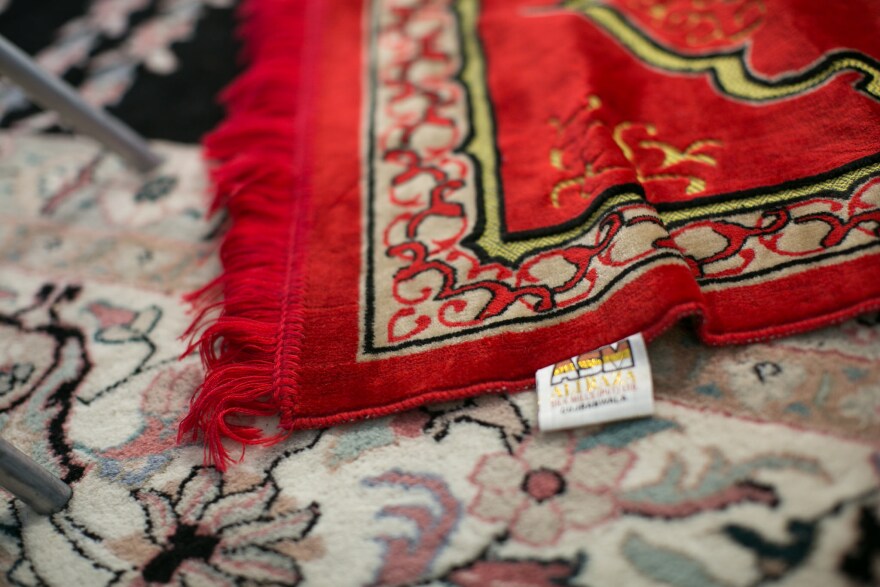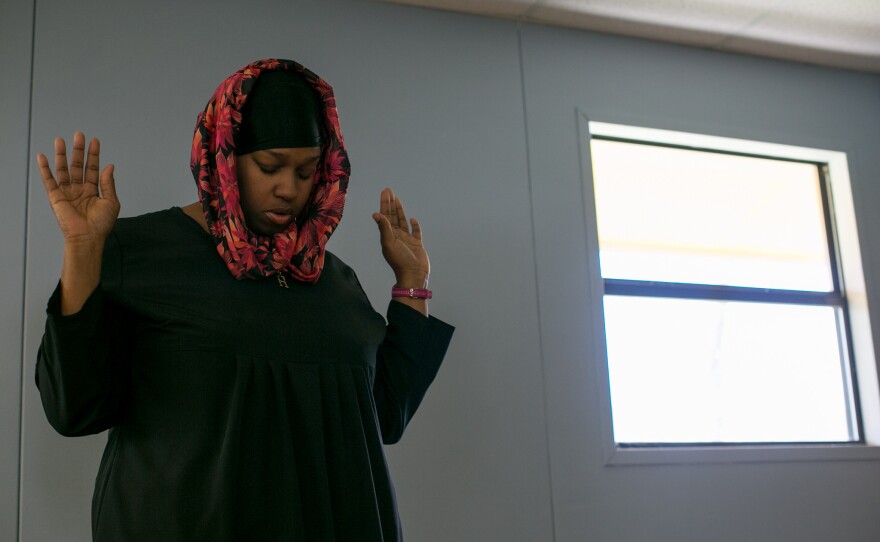Churches are among the most segregated places in the country, according to a study by religious scholar Curtiss Paul DeYoung. He found that only five percent of churches in the U.S. are racially integrated.
But it happens that there's at least one integrated house of worship here in Austin: Muslims and Quakers have been sharing the same space on MLK Boulevard for a couple of years.
At a church on Austin's East Side, Quaker parishioners gather on Sundays for their traditionally silent services, which last about an hour.

But on Fridays, a different group of people occupies the same worship space. While on Sundays these buildings house a church, on Fridays, they house a mosque. During their services, Muslim worshippers pray, some of them while kneeling on rugs.
The Quakers own the space, and they don't charge the leaders of the mosque for using it. JWWostal is a Quaker, and she's part of the committee that agreed to share the facilities with the East Austin Community of Al Islam, the Muslim congregation.
She says they did so because their guiding principle is that "there is that of God in everyone."
When first discussing the possibility of the shared space, these Quakers and Muslims quickly discovered some shared values.

Wostal says the two values that stuck with her the most were "peace and spirituality." She says "[those] are the things that I think of when I think of this group and my interactions with them."
Imam Asim Shareef leads the Muslim congregation, and he says that while the groups do have differences, they share enough in common to build a relationship.
"One of the basic teachings in our religion," says Shareef, "is that to really know someone [you need] to spend time with them, live with them, work with them, do business with them. And then, you really know the person."
That's why these Muslims and Quakers decided to take their relationship beyond just using the same space at separate times. Now they sometimes have joint meetings and, on special occasions, they have joint meals.
"It's really been very beneficial to them and to us," Wostal says.
The Community of Al Islam eventually wants to have its own space and is fundraising towards that goal. For now, though, they share some expenses with the Quakers. They don't have to, Shareef says, but they contribute because they feel like it's the right thing to do.
Up until now, the Muslim and Quaker relationship in East Austin was unknown to many Austinites. This is in part because Quakers are a little private and in part because the media is not always kind to Muslims, and they don't necessarily want the attention. But Shareef is convinced there are more interactions like theirs going on that people just don't know about.
As he puts it: "There's good going on all over the world all the time."
The East Austin Quakers and Muslims say that they'll next break bread together during Ramadan at the end of the spring.





